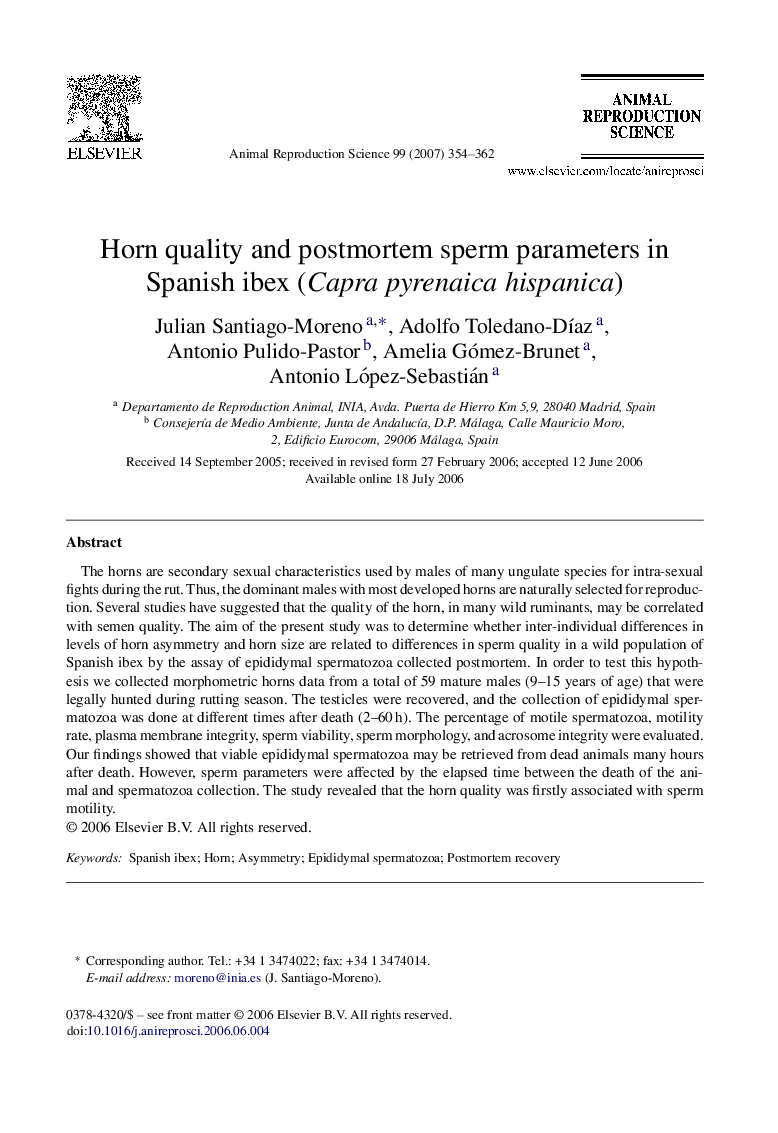| کد مقاله | کد نشریه | سال انتشار | مقاله انگلیسی | نسخه تمام متن |
|---|---|---|---|---|
| 2074828 | 1544817 | 2007 | 9 صفحه PDF | دانلود رایگان |

The horns are secondary sexual characteristics used by males of many ungulate species for intra-sexual fights during the rut. Thus, the dominant males with most developed horns are naturally selected for reproduction. Several studies have suggested that the quality of the horn, in many wild ruminants, may be correlated with semen quality. The aim of the present study was to determine whether inter-individual differences in levels of horn asymmetry and horn size are related to differences in sperm quality in a wild population of Spanish ibex by the assay of epididymal spermatozoa collected postmortem. In order to test this hypothesis we collected morphometric horns data from a total of 59 mature males (9–15 years of age) that were legally hunted during rutting season. The testicles were recovered, and the collection of epididymal spermatozoa was done at different times after death (2–60 h). The percentage of motile spermatozoa, motility rate, plasma membrane integrity, sperm viability, sperm morphology, and acrosome integrity were evaluated. Our findings showed that viable epididymal spermatozoa may be retrieved from dead animals many hours after death. However, sperm parameters were affected by the elapsed time between the death of the animal and spermatozoa collection. The study revealed that the horn quality was firstly associated with sperm motility.
Journal: Animal Reproduction Science - Volume 99, Issues 3–4, June 2007, Pages 354–362